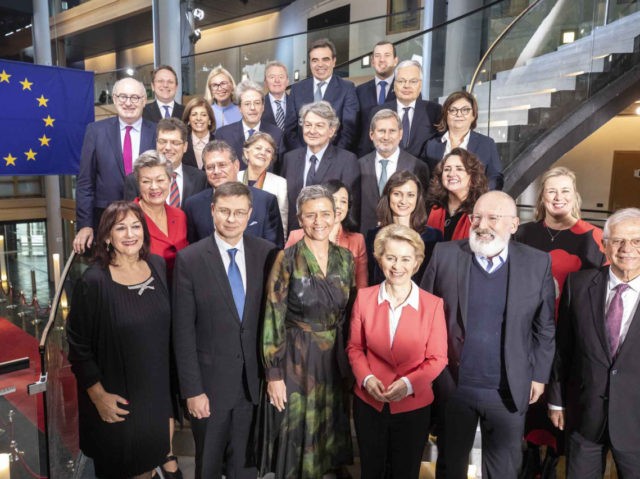The European Parliament has voted to declare a ‘climate emergency’. This is part of an ambitious plan by incoming European Commission President, Ursula von der Leyen for the EU to become the world’s first Zero Carbon entity.
The vote was opposed by the European Climate Realist Network, which argued that ‘unjustified panic and alarm could pressure MEPs into supporting costly policies that will hurt European families, businesses, and Europe’s economic stability and competitiveness.’
It is only likely to exacerbate divisions in the EU between those countries campaigning for deeper emissions cuts and those opposing them.
Von der Leyen wants to increase the EU’s CO2 emissions reduction target from 40 percent to 50 percent by 2030.
But as EurActiv reports, there has been heavy resistance, especially from the former Eastern Bloc territories:
Ten countries – Bulgaria, the Czech Republic, Croatia, Estonia, Greece, Hungary, Lithuania, Malta, Poland and Romania – blocked efforts to include more explicit language. Of those ten, the Czech Republic, Hungary and Poland are the last hold-outs on the 2050 deal.
The Czechs and the Poles are proving especially heroic:
The Czech Republic and Poland in particular refuse to commit to new targets until the costs of ditching fossil fuels are explained fully. Polish energy officials last week insisted that the idea of going carbon neutral by 2050 is “a fantasy”.
Germany, too, is becoming increasingly sceptical of ‘decarbonisation.’
According to Deutsche Welle, last month the German government was forced to scale back its climate protection laws after objections from conservatives in Angela Merkel’s coalition.
The final draft of the new climate protection law, set to be adopted by Germany’s government this week, has been significantly watered down from earlier proposals, Spiegel magazine reported.
German officials have cut the goal to limit national CO2 emission by 2040, according to the Sunday report.
Also, the latest version of the bill drops the pledge that Germany would reach greenhouse-gas neutrality by 2050. Instead, it only says this goal should be “pursued.”
Another change considers the national climate council, the body of experts appointed by the government. The final draft removes the demand for the council to produce a yearly evaluation report. Also, the experts would no longer be required to provide advice to ministries on adjusting their CO2 rate to keep them on track.
Perhaps the bigger threat comes not from the EU legislature itself but from a weaselly financial sector which, increasingly, is using the (non-existent) ‘climate emergency’ as an excuse to feather its own nest at taxpayers’ expense.
Here is a chilling proposal from Gilles Moec, chief economist at AXA Group:
The transition to a decarbonised economy is vital, but it is an illusion to think this will come without costs. An economic transition of this scale requires serious funding.
The European Commission estimates the investment needed to deliver on the targets for CO2 emissions is 1.5% of European GDP annually over the coming decade. Some of this will be funded by the private sector and institutional investors are also keen to play their part. However, in many cases, green projects will only be profitable over a long horizon and we will need significant public funding.
But how can we secure this source of funding efficiently and effectively given how politically sensitive distributing public money is?
Moec goes on to suggest that the EU repurposes the European Stability Mechanism (ESM) – redesignated as a European Climate Emergency Fund (ECEF) – to hose hundreds of billions of Euros at officially designated green projects, courtesy of course, of the EU taxpayer.
This is crony capitalism in excelsis and one of the reasons the United Kingdom was so wise to vote to leave the EU. Or at least it would have been wise were not for the fact that the administration mostly likely to lead Britain into its bright, post-Brexit future – Boris Johnson’s Conservatives – appears to be even more wedded to uncosted, impractical, damaging green targets than the EU itself.

COMMENTS
Please let us know if you're having issues with commenting.